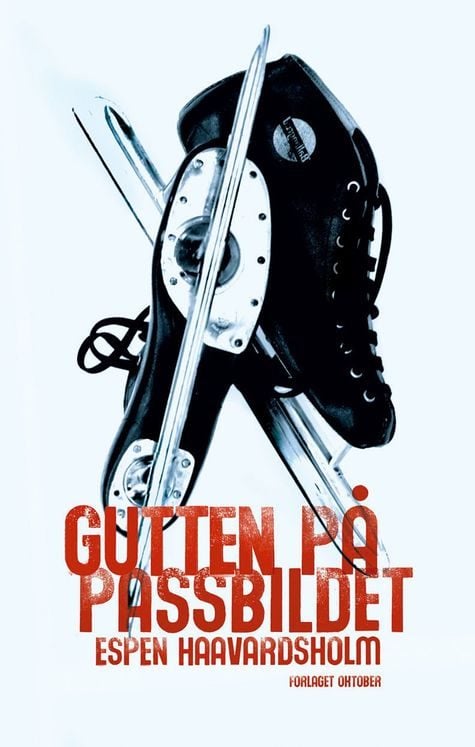 ”An outstanding novel by Espen Haavardsholm which combines documentary with fiction and reminiscences … an exciting and moving novel about growing up in Oslo … If you love really good novels, which you can just embark on without being weighed down by clichés and an old-fashioned style, well, I’d suggest you get to the bookshop to get hold of … Espen Haavardsholm’s fictional gravestone for the brother he actually lost before he was ever really born”
”An outstanding novel by Espen Haavardsholm which combines documentary with fiction and reminiscences … an exciting and moving novel about growing up in Oslo … If you love really good novels, which you can just embark on without being weighed down by clichés and an old-fashioned style, well, I’d suggest you get to the bookshop to get hold of … Espen Haavardsholm’s fictional gravestone for the brother he actually lost before he was ever really born”
Jyllands-Posten, Denmark
“Shocking honesty… He knows the art of transforming personal experience into general truths. That is the kind of thing that characterises great literature”
6/6 stars, VG, Norway
”A great deal is true, but at least half is made up”. And this will certainly keep you entertained if you are already familiar with the author and the milieux – after all, this is a relationship this rather famous Norwegian poet flirts with a good deal. For a Danish reader, who may not be quite so familiar with the milieux, this novel can be read purely as a novel and it is here the book comes into its own … one looks forward to the much-heralded sequel to this unique memoire, which is about to be published in Norway”
Fyens Stiftstidende, Denmark
”We are already familiar with Espen Haavardsholm’s Oslo thanks to his earlier novels … Winter sports are another theme popular with our Norwegian neighbours, and this is nicely portrayed in this book. In both areas, Haavardsholm has performed a rather original trick with this semi-documentary of self-examination…i A second voice being added to each third chapter imbues the self-realization with a unique rhythm and extra dimension: It’i s Espen versus Nils. Metatext without metaphysics in a culturally radical milieu which is sketched out in a funny, ironic and accurate way through the family’s social life, coloured by named celebrities … the culmination of the novel …i is an obsessive piece of writing and a violent act, which has required careful and ongoing preparation throughout the novel … This Espen is an astute evoker and painter of the times thanks to his outlining of the Cold War on the outside, and and his references to fairytales, dreams, social mores, the thrum of rock music and all that jazz”
Information, Denmark
”A tender, special novel – about one’s years as a boy, girls and women and mothers and shadows which have to become reality to disappear. A novel about childhood’s mark of Cane. About raw survival. And of course, about love”
Weekendavisen, Denmark
”Espen Haavardsholm fabulously records the young boy’s encounter with the adult world. From the very first page we realize that this is a very special work. Espen Haavardsholm’s autobiographical novel Gutten på passbildet is outstanding literature and deserves the great reviews it got on being published in Norway. The novel is complex and surprising … He seems inspired and writes honestly and just as care-freely about skating competitions between school kids, bashful communication between teenagers and adults’ desperate attempts to deny their failings. A pleasure to read”
Kristeligt Dagblad, Denmark
”Espen Haavardsholm remembers well, and this is why he should be read. Details both great and small from the Cold War after WWII … In the novelist’s italicised paragraph from the present we sense the extent of the personal pain the losses and vicissitudes of childhood have brought about. In the novel about Nils Hå he publishes his experience in a literary form, and it is this fusion of literature and truth which makes the novel so very effective”
Litteratursiden.dk, Denmark
“…a success all the way through…. A novel of the kind that continues to live inside the reader after you put it away”
Klassekampen
“…the best thing Haavardsholm has ever written…The Boy in the Passport Photo hit me right in the solar plexus”
Fædrelandsvennen

